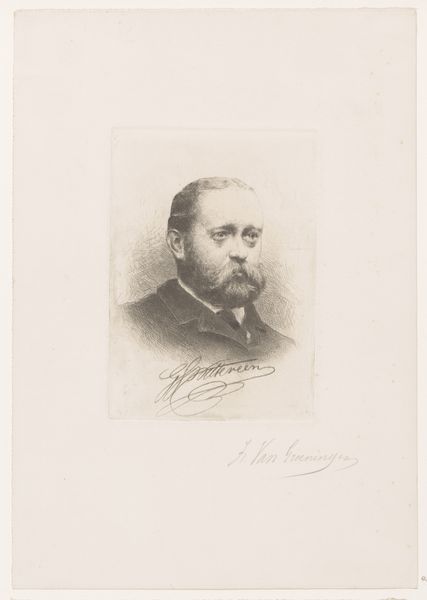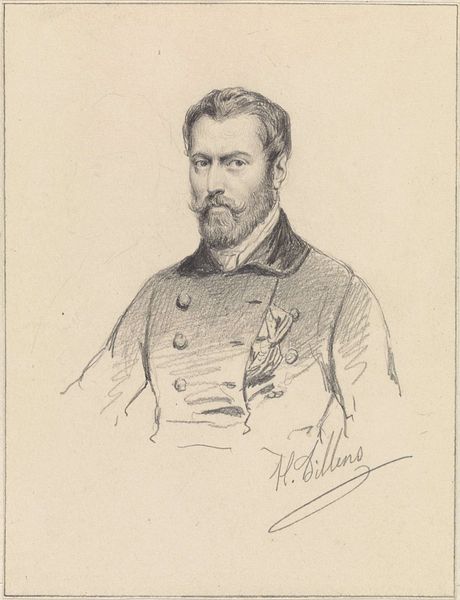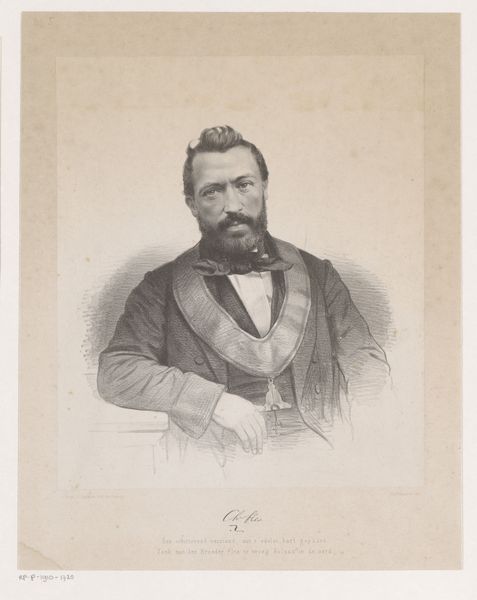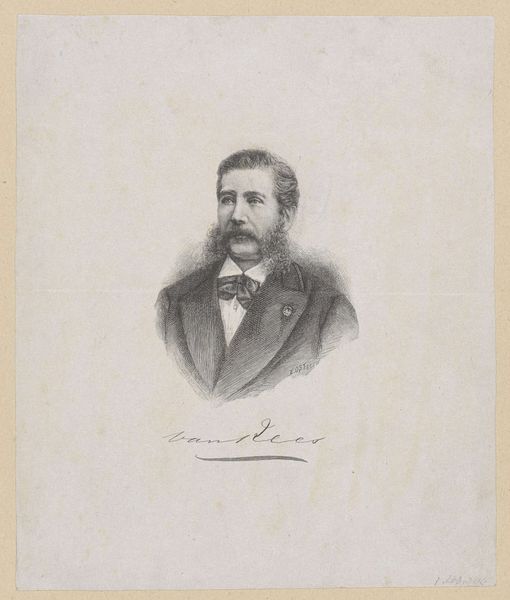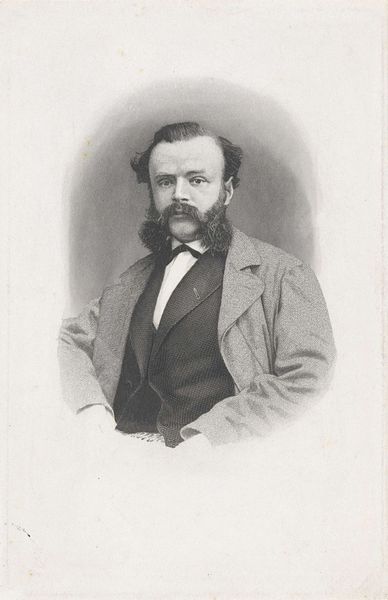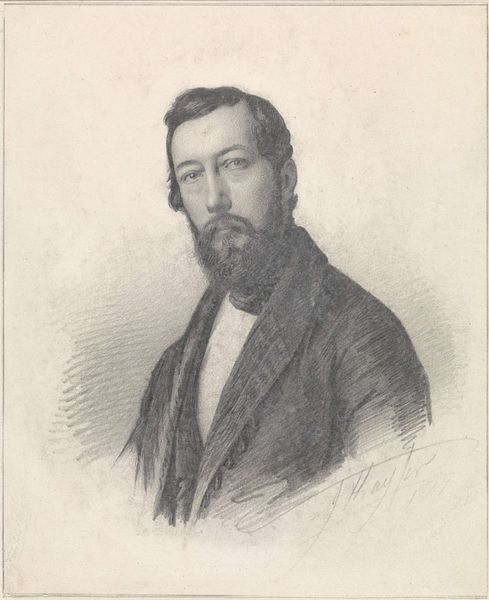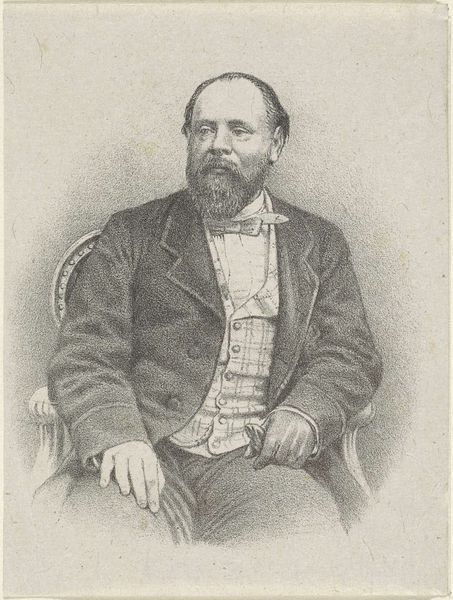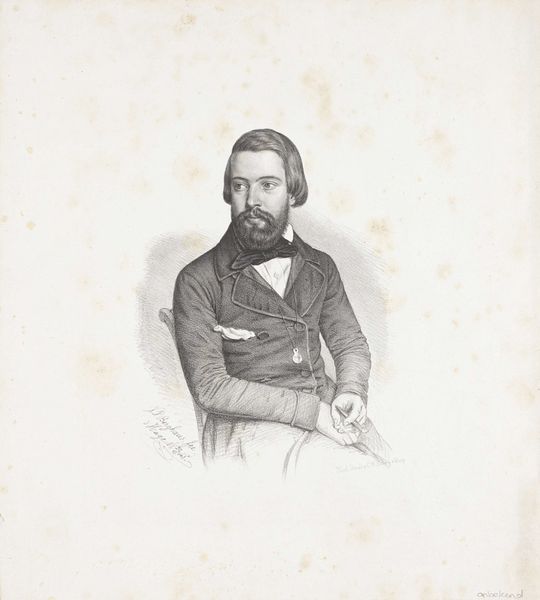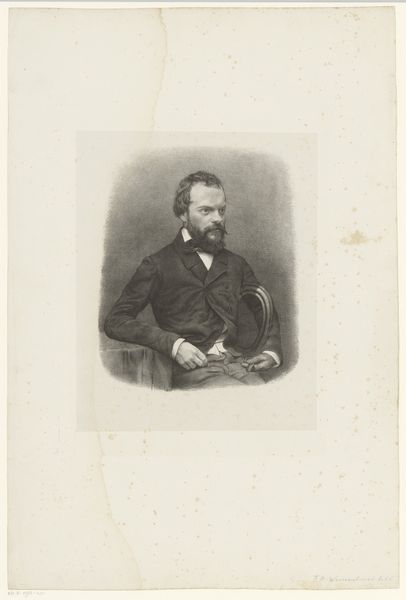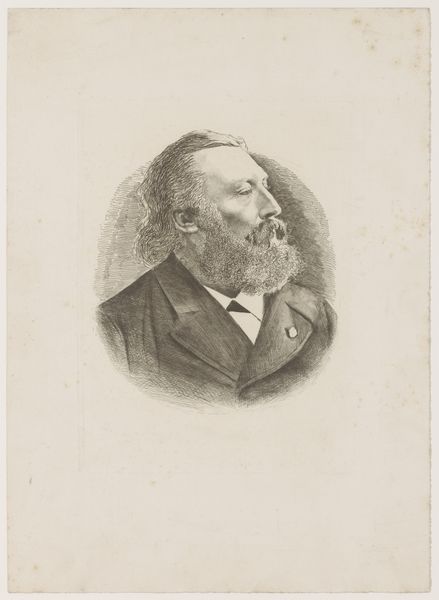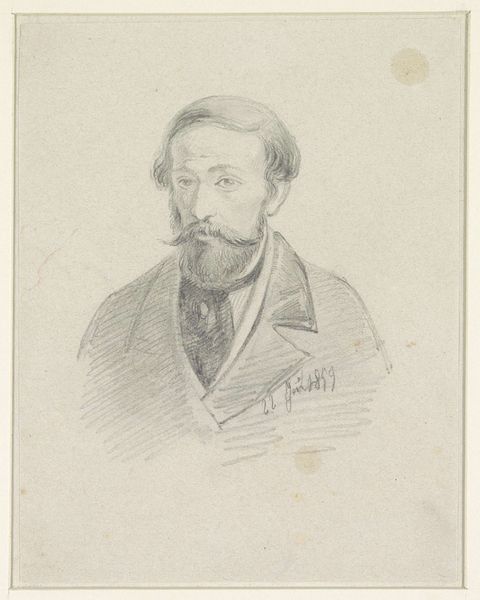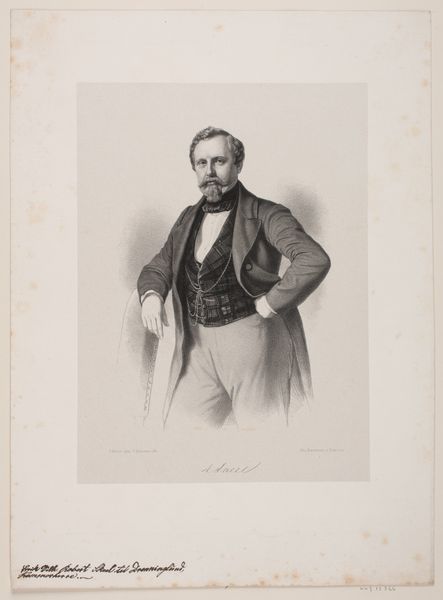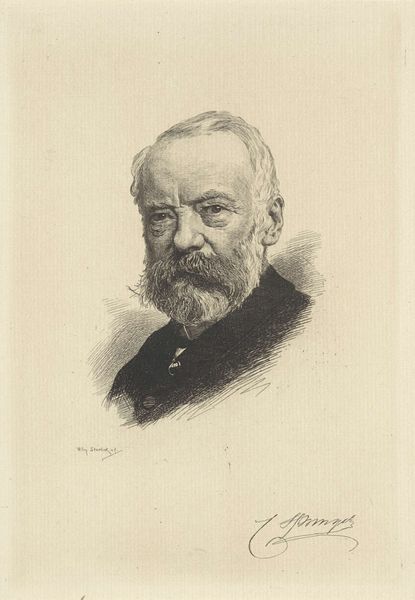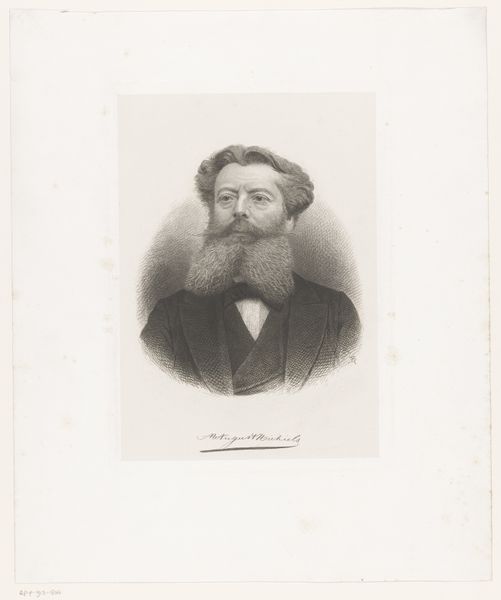
drawing, pencil
#
portrait
#
pencil drawn
#
drawing
#
pencil sketch
#
pencil drawing
#
pencil
#
academic-art
#
realism
Dimensions: height 345 mm, width 268 mm
Copyright: Rijks Museum: Open Domain
August Allebé created this sensitive portrait of the artist Wouter Verschuur using graphite on paper. The choice of graphite as a medium is interesting, isn’t it? Here, the artist skillfully builds up tone and form through delicate lines and subtle shading. Graphite, with its inherent qualities of smoothness and reflectivity, lends itself well to capturing the texture of Verschuur's beard and the soft light on his face. But let's consider the wider context. In the 19th century, graphite was becoming increasingly available thanks to industrial production. This availability democratized drawing, making it accessible to a broader range of artists and amateurs alike. Unlike painting, which often required expensive materials and extensive training, graphite allowed for relatively quick and affordable image-making. This portrait reflects a shift in artistic practice, where drawing was no longer simply a preparatory step for painting, but a valued medium in its own right. By emphasizing the materials and techniques of production, we can understand the broader significance of Allebé's portrait, and how it reflects changing social and economic forces.
Comments
No comments
Be the first to comment and join the conversation on the ultimate creative platform.
